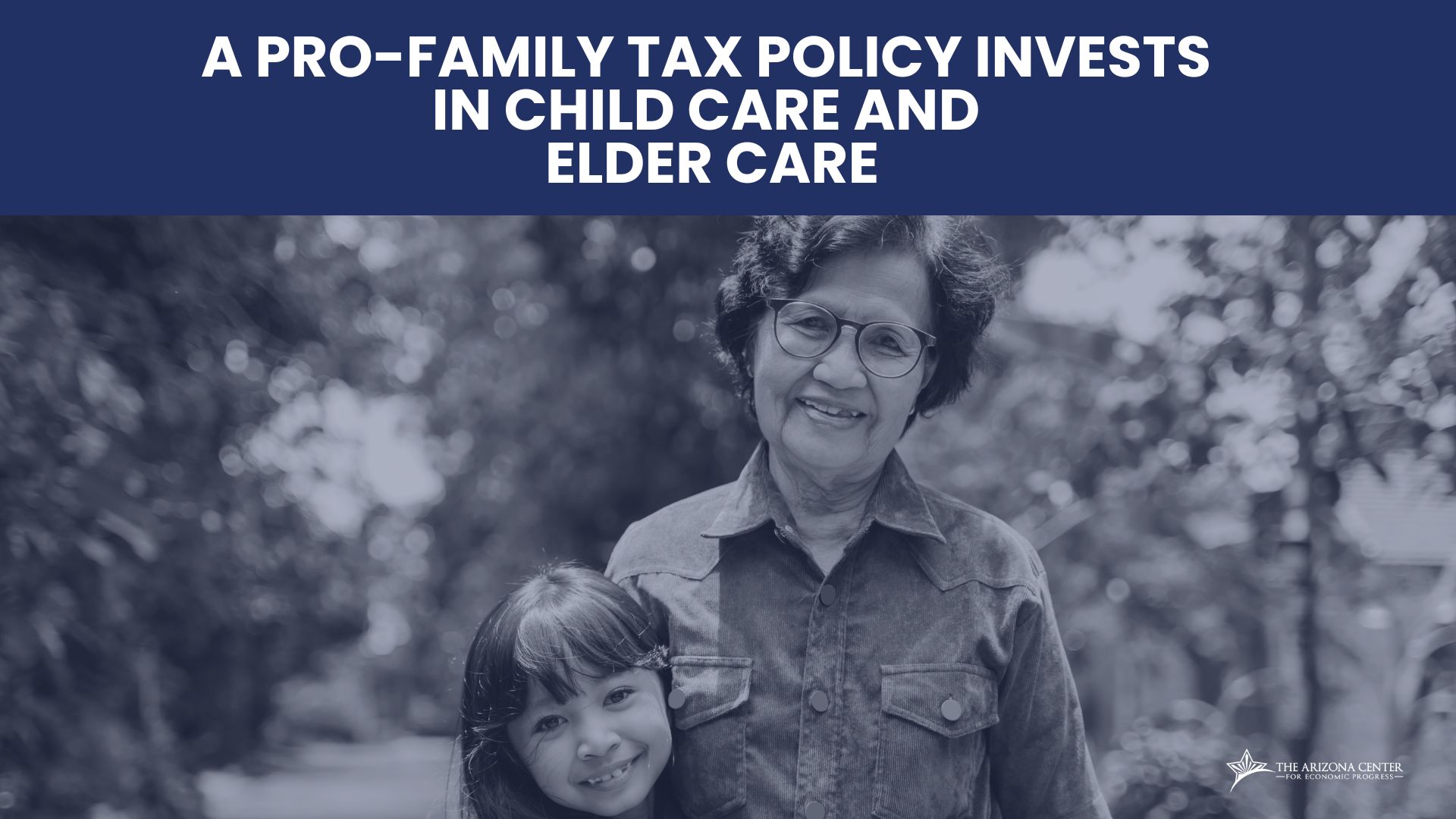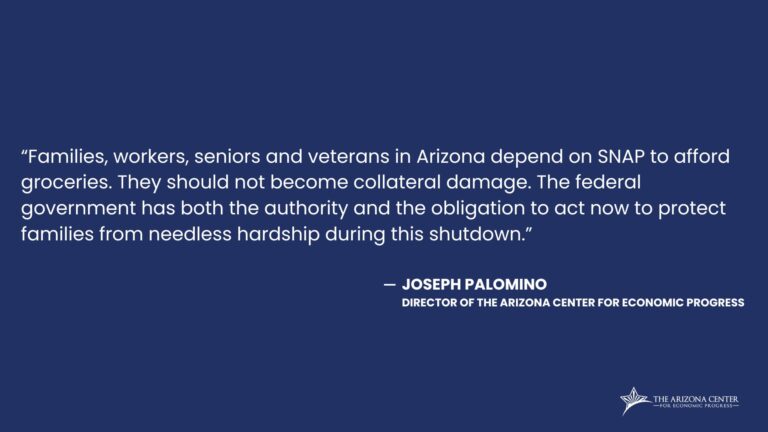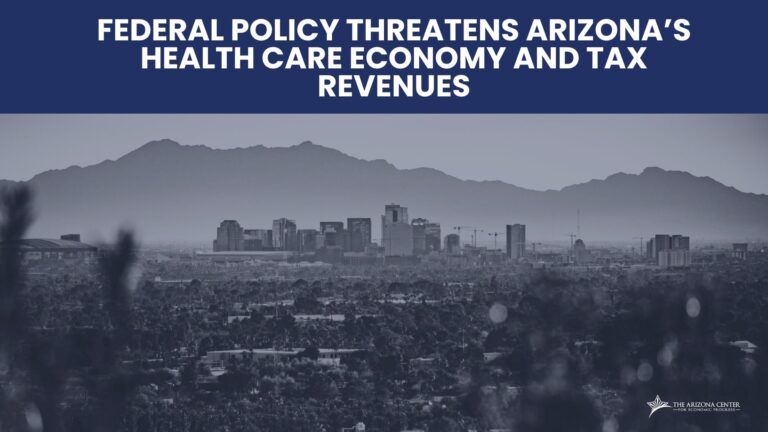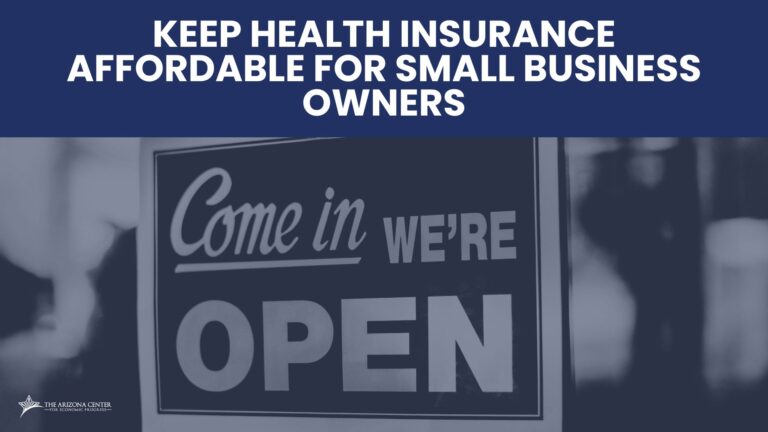
A Real Pro-Family Tax Policy Invests in Child Care and Elder Care
State and federal tax cuts aren’t helping families—they’re leaving them behind. As the federal government pushed for even more tax breaks for the wealthy and big corporations as part of HR-1, everyday Arizonans are left scrambling to fill the growing gaps in child care and care for older loved ones.
The reality is stark: Child care costs are rising at nearly twice the rate of inflation. Arizona families are paying an average of $15,625 per year for infant care, forcing many new parents to delay buying homes or making other major financial decisions.
According to research from professional services firm KPMG, since August 2024, child-care prices have been climbing at roughly twice the pace of overall inflation. Furthermore, the child care sector sits about 100,000 jobs short of its pre-2023 trend—fueling waitlists, closures, and higher prices that hit working parents the hardest.
At the same time, unpaid caregiving of older loved ones is quietly propping up the system. In the years 2021-2022, roughly 37.1 million Americans—1 in 10 people—provided unpaid care for older family members. When formal care options are available, they complement unpaid family care. But as the government continues slashing funding in favor of tax breaks for the wealthy, unpaid care won’t just be a supplement—it will be the only option for many families.
The fallout is already visible in the labor market: KPMG found that work disruptions tied to child care problems affected an average of 1.34 million workers each month in 2024, translating to up to 1.44 billion lost work hours and $15 billion to $44 billion in lost wages. College-educated mothers of young children are leaving the labor force at especially high rates—talent Arizona’s economy can’t afford to lose.
This isn’t just a family issue—it’s an economic crisis. Arizona loses an estimated $4.7 billion every year due to the lack of child care for children under 5. When parents can’t work or must reduce their hours to care for their children, the entire economy takes a hit.
Health coverage changes could make things worse: If marketplace subsidies lapse, premiums will spike, causing many young adults to lose coverage. That means higher out-of-pocket costs, more medical debt, and greater instability for young families already stretched by child care costs. A family of four in Arizona, making $126,000, who purchases their health insurance through the Affordable Care Act (ACA) marketplace would see their premiums increase by $5,020 if the enhanced premium tax credits expire.
A true pro-family tax policy should prioritize generating a fair share of revenue from corporations and the wealthy to invest in solutions that actually help families, including expanding child care and elder care programs, increasing access to affordable housing and health care, and putting money back in the hands of working families through a fully refundable child tax credit.
When the federal child tax credit was temporarily expanded and made fully refundable in 2021, child poverty fell by 46%, lifting 2.9 million children above the poverty line—including large reductions for Black and Hispanic children. That’s what real, pro-family tax design looks like.
Additionally, Arizona must consider what opportunities it has to address the growing child care crisis in the state. This year, Governor Hobbs and a bipartisan majority of the Arizona State Legislature passed a budget with $45 million dedicated to affordable child care. This is a significant win for families. However, Arizona’s investment in child care is still below where it was prior to the Great Recession. The lack of investment is hurting Arizona families with young children already facing higher costs of rent, utilities, and food.
Beyond tax policy, we need to redefine what pro-family policies really look like. Supporting families means funding public goods like libraries, parks, and schools—not gutting them. It means rejecting policies that endanger children, reverse civil rights progress, or target vulnerable communities. And it means recognizing that tax policy isn’t just about numbers on a spreadsheet—it’s about deploying taxpayer dollars in ways that benefit all taxpayers, not just the wealthy few.
Arizona should lead with a simple standard: if a policy doesn’t make it easier to raise kids, care for our older loved ones, and keep parents in the workforce, it’s not pro-family. A refundable child tax credit and reliable care funding meet the test. Top-end tax cuts do not.
The Arizona Center for Economic Progress will be in Douglas and Sierra Vista this Wednesday, October 15, 2025 and Thursday October 16, 2025 to lead a discussion on the child care landscape in rural Arizona and to share insights from its child care survey conducted in those communities earlier this year.
Register at the following links for Sierra Vista and Douglas.



